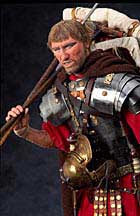 "Heinrich von Staden is one of the world's foremost authorities on ancient science and medicine. His book Herophilus: the Art of Medicine in Early Alexandria (1989) is a major contribution to the history of Greek intellectual discourse. Von Staden's broad range of interests includes classical philosophy and literature. Among his current projects is a book-length work on Erasistratos (the Hellenistic pioneer of human dissection), a study of the relation between "nature" and "art" (techne) in ancient science, and a study of medical ethics in ancient Greece and Rome.
"Heinrich von Staden is one of the world's foremost authorities on ancient science and medicine. His book Herophilus: the Art of Medicine in Early Alexandria (1989) is a major contribution to the history of Greek intellectual discourse. Von Staden's broad range of interests includes classical philosophy and literature. Among his current projects is a book-length work on Erasistratos (the Hellenistic pioneer of human dissection), a study of the relation between "nature" and "art" (techne) in ancient science, and a study of medical ethics in ancient Greece and Rome.Ph.D., Universitat Tubingen, 1968; William Lampson Professor of Classics and Comparative Literature, Yale University, 1997-98; Professor, Institute for Advanced Study, 1998-; Charles Goodwin Award of Merit, American Philological Association, 1992; William H. Welch Medal, American Association for History of Medicine, 1993; Corresponding Fellow, British Academy; Member, Association des Etudes Grecques en France, American Philosophical Society, Acad?mie des Inscriptions et Belles Lettres, Institut de France; Corresponding Member, Akademie der Wissenschaften, Gottingen."
Professor von Staden is a professor at the Institute for Advanced Study.
"The Institute is a private, independent academic institution that enjoys close, collaborative ties with Princeton University as well as Rutgers, The State University of New Jersey, and other nearby institutions."
"A compelling lecturer with an unusual talent for synthesis and exposition, Professor von Staden has given more than 75 external lectures at universities and institutions both here and abroad. His work on medicine is informed by a thoroughly professional knowledge of philosophy, in which he was trained as a doctoral candidate in Germany. While he approaches the culture of the ancient Mediterranean world mainly through the history of its thought and ideas, he retains from his classical background a strong philological base that is reflected in several important articles on semantics.
Professor von Staden gave a lecture, "When Physicians Err: Responses to Medical Failures in Antiquity," in the Institute's Public Lecture Series. In ancient Greece and Rome medical authors often referred to disorders caused or aggravated by medical intervention. Many physicians displayed an awareness of a tension between their claim to an efficacious professional expertise, based on scientific methods, and the frequency with which even expert practice led to unintended harmful consequences. The lecture explored strategies physicians adopted in response to this tension, their accounts of the reasons for the fallibility of scientific medicine, and moral and social responses to medical failures."
"Professor von Staden has published numerous articles and reviews, and is the author of several books, including his work on the Alexandrian doctor Herophilus. Herophilus: the Art of Medicine in Early Alexandria (1989, second edition 1994) is widely regarded as a critically important resource for study not only of the Hellenistic period but of the whole history of Greek medicine. Among Professor von Staden?s current projects is an edition of Erasistratos with full commentary, a companion volume to Herophilus. Von Staden is also working on an edition of six treatises by Galen, as well as a book-length study on ancient and mediaeval theories of language."




